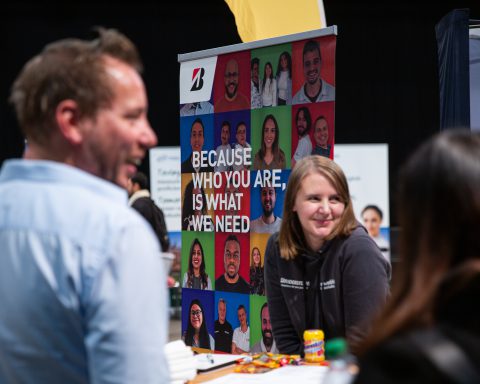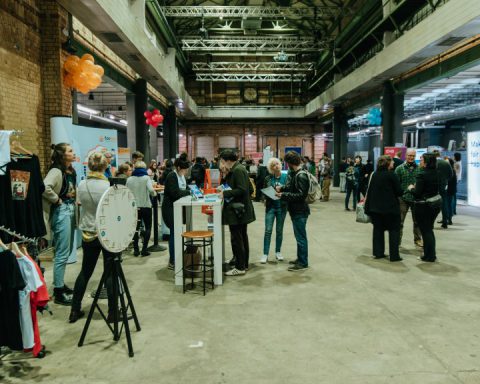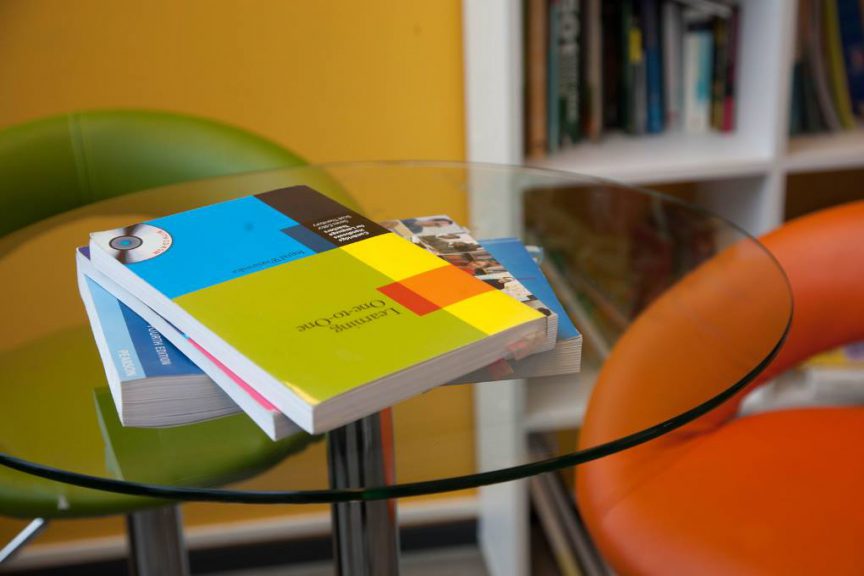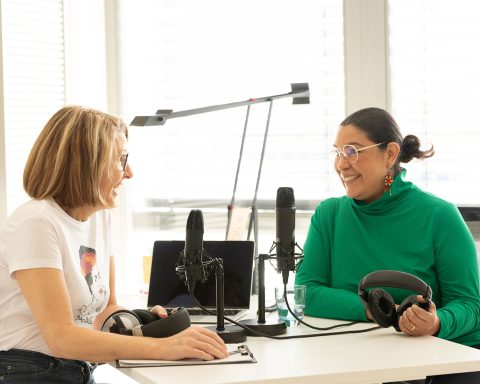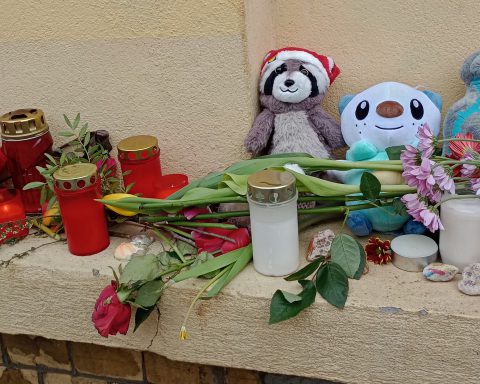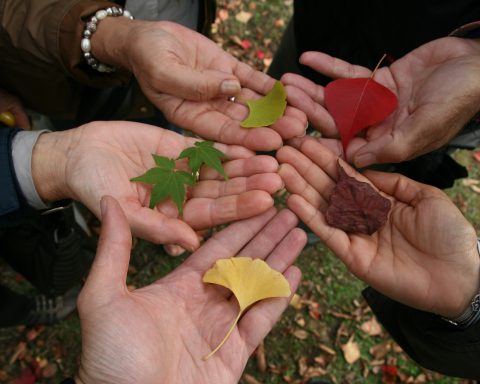The first thing I teach people I’m mentoring is: always use all of your resources. As someone who grew up with extremely limited resources (think hut, mountain, rain water collection, no school, no doctor, no paved roads, no nothing), it is astonishing to me when people in Western Europe have access to very effective, free, and confidential resources but don’t use them.
Matching people and resources is among my favorite things, so allow me to point you to some resources for migrant advising in Leipzig.
I have sometimes been shocked by how heavy some of the queries entrusted to strangers are on our Leipzig Expats Facebook page. But that’s only natural. Migrating is heavy business – there’s a lot of uncertainty and stress and systems you don’t understand but have to grapple with. And the first point of inquiry is often other migrants, who may or may not have accurate information.
What I want to achieve in this article is to introduce some more qualified and better-informed sources for migrant advising available to anyone who is settling in Leipzig, whether for two years or twenty, whether for work or as a refugee, or for any other reason.
What is an MBE?
In Leipzig there are several organizations categorized as Migrationsberatung für erwachsene Zuwanderer, known as MBEs. They are funded by the national government, so their services are free. Their mission is to mediate between migrants and local structures and institutions such as immigration services, employment opportunities, job training and study programs, language classes, housing issues, school and childcare resources, and issues with discrimination. That means that if you have a question about how to get a visa, how to allow a family member to join you here, how to apply for jobs or job training, how to find housing or childcare or understand your insurance, these organizations will help you at no cost and based on accurate and up-to-date information.
A list of the MBEs in Leipzig can be found here. They serve migrants above age 27, assuming that people below the age of 27 typically have other concerns. For those people, you can contact the services meant for migrant youth, listed on the same page under Jugendmigrationsdienst.
Where to go for migrant advising
I interviewed Éanna O’Donnell, who works at the Verband binationaler Familien und Partnerschaften e.V. He was kind enough to talk to me about migrant advising, its aims and limitations and how it works.
When I arrive at their offices at Arndtstraße 63, I’m amused to see graffiti on the front of the building saying “refugees welcome.” There’s more on the passageway into the courtyard saying “still not loving Germany.” When the door of the office opens, I see a clean and cheerful facility that smells like coffee and markers and binders. Éanna shows me around the premises, which used to be a large flat and has been reworked into a number of offices and a classroom/meeting room. A small group of men are in the classroom learning to read Latin letters so they can go on to a German class.
I meet the charming Rachid El Achab, who offers advice in Arabic and German. Leipzig Councilwoman Nuria Silvestre advises in Spanish and Portuguese, and my host for the afternoon, Éanna O’Donnell, in English, Italian, French and German. Besides migrant advising, the Verband offers courses and workshops on diversity and inter-cultural communications for local institutions, as well as talks and exhibits and projects, which you can see on their website. Despite their name, migrant advising is open to anyone, whether or not they are part of a binational family.
Here is part of our chat, edited and condensed for space and clarity.
Can you tell us a bit about yourself and how you came to Leipzig?
I’m originally from Ireland and came to Germany after living in France and Italy. I first came to Leipzig in 2011 after spending two years in Berlin. I settled here long-term in 2015.
How did you get interested in this type of work?
I was doing translation work and tutoring, especially migrant youth, and felt that it made sense for me as a migrant to be involved and give back. I had been commuting to work with an organization that works exclusively with refugees, outside of Leipzig, helping to get refugees jobs or to get into an Ausbildung (job training). So that was the first migrant advising role I had in Germany, but I wanted to finish commuting, so I have now been here for six months.

What sort of migrant advising is and is not offered here?
Migrant advising is defined by BAMF, who is our funding source and who funds MBEs across Germany. Each organization is independent of BAMF, but they set certain standards. Who I see and the specifics of their individual situation is always confidential, and is totally free of charge, although advisees are often surprised about that. It’s available to all – in principle those over age 27 – but that is flexible depending on the type of issue a person has. That’s the adult part of “erwachsene Zuwanderer.” And “migrant” means anybody who has moved here.
That’s interesting, because we tend to use the word “expat” for white people with money, and “migrant” for everybody else. But this service is available for migrants from any sort of economic situation, regardless of the reason they moved here and whether that was voluntary or involuntary?
Generally, someone who wants to stay here longer-term is what it’s designed for, including people who have been here a while but are struggling for whatever reason. I don’t turn anyone away, although there are cases where a different organization is better suited to handle a particular problem, and I would match them up accordingly.
So it’s about helping people get settled with the basics: job, visa, somewhere to live. Do you also help people with school and kindergarten issues?
We’re here to support people, but we can’t do what a lawyer would do. We advise individually, every case is completely different and needs a different approach.
We set goals and share tasks with our clients. We also try to empower people to be able to solve their problems themselves.
We’re trying to help with the process of integration, so language is part of that, which means enough German that you can communicate and have a job, and financial stability, being able to support yourself.
The housing situation in Leipzig comes up a lot, as well as childcare which is quite difficult in Leipzig, so as much as capacity allows, we would help people look at new Kitas (child daycare) opening up, or help them understand the proper process of registration. The reality is that you have to both register and go see the kindergartens in person, to ring ’round, and write emails and so on. That can be bewildering to people who expect Germany to be like Germany’s reputation for clear-cut rules, and honestly it’s confusing to Germans as well.

I was quite shocked recently to find that people who had been here for a while did not know they were entitled to Kindergeld, and that there isn’t an uptake process where there’s a brochure or something that tells families how to get hooked into the system. Nobody does general orientation. Are there also projects where you interface with city organizations and institutions to make the process of uptake and information flow work better?
We do that as well. Besides working with clients, the other part is networking, regular working groups we attend. For example, I was at one today on migration, and the head of the Ausländerbehörde was there. Another working group is on employment, where we interface with the Jobcenter. They share information, and we can also ask questions.
But how does information get to migrants?
Well, to some extent through us, because our job is to coordinate and mediate. Ideally, you could take one person and give them an all-around overview, but theoretically they’re supposed to find that information on their own, and sometimes the various communities are quite strongly networked and supportive of their members.
So if we’re supposed to find the information on our own – where? I know there’s the Welcome Centre, but do they have a website with a run-down of resources and protocols for getting yourself sorted?
The Welcome Centre wouldn’t have all the information. I’m there on a Friday morning, actually, as we all take turns being there. That would be the ideal first place to go, as everyone has to go ’round and do their Anmeldung, and the Welcome Centre is in the same building as the Bürgeramt.
We’re working on a better connection between the Anmeldung and the Welcome Centre We’ve just had a meeting about that, in fact. It’s a matter of trying to get separate organizations to coordinate with each other and to make that extra effort so people know we’re there. We’d like to inform people about the Kindergeld and the Rundfunkgebühr straight away, rather than waiting until it becomes a problem.
We’ve had people with medical emergencies who didn’t know where the hospitals were or what to do if you get ill on a holiday. I feel strongly that we can do better, we can get that information out better. Another query we get very frequently is people looking for English-speaking therapists.
I know a few resources specifically for refugees, through the psychosoziales Zentrum at Mosaik e.V. They offer help to any migrant, refugee or otherwise, in a number of languages.
Even if you call and find that there’s a waiting list at that time, you should still put your name down because that allows them to request more funding and hire more staff if they have a record of how big the demand is. If people don’t register that they need services, the organization can’t argue effectively for more funding and more staff. Mental health resources in English – and covered by insurance – can be really hard to find.

What about experiences of discrimination, whether overt verbal abuse or situations where it looks like someone is being cheated because someone thinks a migrant won’t be able to defend themselves? What recourse does someone in that situation have?
They could go to the RAA, which does Opferberatung. That’s generally intended for cases involving violence. There’s also the Antidiskriminierungsbüro Sachsen for non-violent cases. They would help you apply the AGG, or allgemeine Gleichbehandlungsgesetz, which is the law on equality and anti-discrimination.
Some things that might count as discrimination in your home country are allowed, such as a confessional school giving preference to applicants of the same confession. But in other cases you might have to take the legal route.
Is it legal for landlords to refuse to rent to foreigners? Because they certainly do that. I’ve had people tell me straight out that they won’t rent to foreigners.
That is not legal, and that is something I hear about a lot. We would put them in touch with the appropriate organization. If someone wants to take the legal route, you would have to have proof and witnesses, so I think there are very high hurdles to getting justice in that kind of discrimination case, but I could at least send them for assessment to see if they can make a case.
We do hear about it a lot, and there needs to be something done about it, but nothing can be done if we don’t have clear information. And landlords can exclude foreigners indirectly by requiring a certain amount of time to be still on their visa or not taking people who are on benefits. My role would be to act as the first port of call and connect the person to another free and confidential service specialized in that type of issue.
When it comes to employment issues, let’s say you feel you aren’t receiving your full wages, you would appeal first to HR and follow the same protocol as a German employee?
Exactly, and if that doesn’t work, you have to write a demand letter. If they still don’t respond, it will mean going to court, so it can be quite complicated. But there are also organizations specialized in that type of conflict who offer mediation.
There’s also the issue of whether people are unclear about their employment status and are in a vulnerable position, but we don’t report anybody who might turn out not to have had the proper papers. We’re not obliged to share information, and we have a duty of confidentiality. I can’t share anything that a client doesn’t specifically sign off on me sharing.

What is the proper recourse in the case of on-the-spot discrimination, for example being required to show your ID based on what you look like, when others who are white aren’t asked to, whether trying to get into the club, using the trams and trains, or even buying groceries?
There seems to be a bit of a gray area where businesses or employees can use their discretion, but there’s no gray area when it comes to racial profiling. There were a lot of problems with clubs in Leipzig not letting people they thought were from North Africa or the Middle East in. I’m not sure what I would advise in that case. Sometimes there’s not a lot you can do in the moment, but I would definitely recommend reporting the incident to the Antidiskriminierungsbüro and finding out from them what action could be taken. Club entry is covered under the AGG, but that can’t be applied if it isn’t reported.
It seems that migrants should coordinate with each other and pool their knowledge of places which persistently ID people of color, so that we can refuse to patronize them, and also let them know we are, as a community, staying away from their business specifically because of such practices.
Exactly, like I was saying with the housing market. If it’s not widely known, we can’t do much, so come and tell us or write us about it so we can at least collect the information. With concrete examples, we can take steps to try to change things, but I can’t do a lot with anecdotal evidence. I need precise documentation with the time, date, company involved.
If you had unlimited money and resources and your own squad of superheroes, what steps would you take to optimize the system?
I would be wary of always saying we need more money. There needs to be more coordination. Our job is to empower people, not to do the work for them or create dependency. So yes, with more money we would have more staff and could serve more migrants, but I think the real issue is to make things more efficient and focused. I see people who want to work and to learn German, and that’s not a problem that requires a huge amount of money to solve.
Help yourself and others
So there you have it, people. As I enter into a hiatus from writing for the Glocal, this is the last thing I want to leave with you. If we want to make the process of integration easier for yourself and the rest of the migrant community, including those who will come here in five, ten, or twenty years, there are two things we can do:
1) Make use of the resources that are in place. Especially the MBEs – not only to get practical help for yourself, but also so the city knows they are important and should continue to be funded or have more funding provided for them.
2) Report, report, report. Move information on discrimination or other obstacles to integration into the right hands, so that it can be used not just for justice in your own case, but also to register how big the problem is and what shape it has specifically. Telling one another about these experiences has its place and its own value, but we also need to be telling these things to MBEs and the anti-discrimination office, so that they can act effectively in response to the problem.

